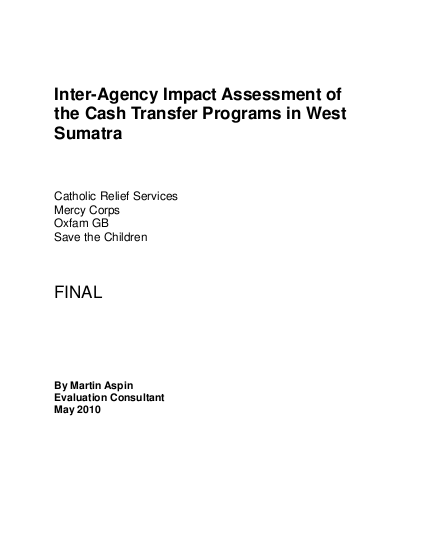
Following the 2009 earthquake in West Sumatra, cash transfer programming (CTP) has proven successful in delivering a fast and effective recovery response—providing households the opportunity to recover shelter and basic needs for their livelihoods. Success of these CTPs has been supported well by the IASC Clusters Coordination system, which has enabled agencies to coordinate for greater impact and more effective activities. The following assessment examines four agencies’ CTPs and how they coordinated to assist West Sumatra household’s recovery in the months following the earthquake. The assessment recognises that programs had strong positive economic and social impacts and has highlighted the many advantages and disadvantages of each method. The assessment also examined lessons learned and documented key recommendation for developing best practice and advocacy for future cash programming.
Resource collections
- Coordination
- Earthquakes
- Evaluating humanitarian action
- Innovation
- Learning from crises
- Monitoring of humanitarian action
- UN Habitat - Urban Response Collection
- Urban Response - Urban Crisis Preparedness and Risk Reduction
- Urban Response Collection - Community Engagement and Social Cohesion
- Urban Response Collection - Economic Recovery
- Urban Response Collection - Environment and Climate Change
- Urban Response Collection - Housing, Land and Property
- Urban Response Collection - Urban Crisis Response, Recovery and Reconstruction
- Urban Response Collection - Urban Resilience